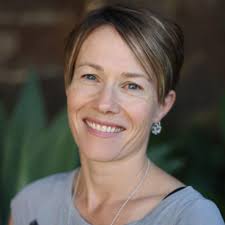ADD THESE DATES TO YOUR E-DIARY OR GOOGLE CALENDAR
This site is part of the Siconnects Division of Sciinov Group
This site is operated by a business or businesses owned by Sciinov Group and all copyright resides with them.
ADD THESE DATES TO YOUR E-DIARY OR GOOGLE CALENDAR

Royal Melbourne Institute of Technology, Australia
Title:Editorial Labour: Feminised Mending, Feminist Making
The role of the editor has long been characterised as invisible, making editors the ‘hidden handmaidens’ of Australian publishing. Pre-eminent Australian editor Beatrice Davis AM, MBE (appointed to read proofs at Angus & Robertson in 1937, before going on to become Australia’s first full-time book editor) famously called editing ‘invisible mending’. Hillary McPhee AO (co-founder of ‘one of the most prestigious independent Australian publishing houses’ with Diane Gribble in 1973) entitled her memoir Other People’s Words. Text Publishing’s senior editor, Mandy Brett, wrote as late as 2011 that the editor is only a reader – albeit an ideal one – whose role is working (with the author) to make any and every book ‘the best conceivable version of itself’. More recently Alice Grundy has argued that ‘keeping the editor’s work invisible’ results in and is the result of a feminisation of editorial labour. There are ample examples of more masculinist ‘mastery’ of, and over, the manuscript (Gordon Lish, Ted Hughes, Ezra Pound) but replacing metaphors of midwifery with those of surgery still hide an editor’s – or editorial collective’s – essential contribution to bookmaking. This intentional invisibility serves Romantic notions of sole authorship, in keeping with copyright law – which, in turn, serve capitalist markets and a neoliberal economy. While Grundy is not the first to propose our names be added to the imprint page (as publishers often do in the cookbook category), we four professional editors, along with Brett, suspect such a step may simply, subtly reinforce the misperception of our work as fundamentally ‘paratextual’ – to use Genette’s phrase, coined to categorise exactly and only the ‘external’ elements a publisher contributes to a manuscript that is understood as entirely the author’s output. We see our work as editors – in the Australian sense, where such individuals commission and are often publishers in all but name – as an aspect of the creative process itself. We believe it is a potential site of radical feminist collaborative practice.
Author of The Asking Game and The Art of Navigation, Rose Michael is Program Director of the BA (Creative Writing) at RMIT. She has been editor of the national trade press journal The Weekly Book Newsletter and Books + Publishing magazine, commissioning editor at Hardie Grant Books, and co-founder of micro-press Arcade Publications. She has written about local independent publishing in Logos: Journal of the World Publishing Industry and with colleagues in Book Publishing in Australia: A Living Legacy.